Bringing a new Bichon Frise puppy into your life is an exciting and fulfilling adventure. The Bichon Frise breed is known for its adorable appearance, friendly nature, and charming personality. These small dogs with their fluffy white coats and expressive eyes can steal anyone’s heart. However, like any new addition to your family, caring for a Bichon Frise puppy requires knowledge, dedication, and a lot of love. In this comprehensive guide, we’ll walk you through every aspect of Bichon Frise puppy care, from understanding the breed’s origins to grooming, training, and health considerations.
[product id=”1916″]
Understanding the Bichon Frise Breed
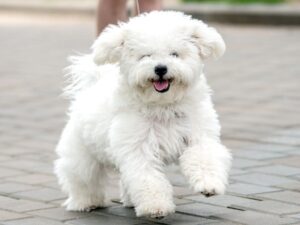
The Bichon Frise is a delightful breed that traces its roots to the Mediterranean region. Originally bred as companions, these small dogs have a natural affinity for human interaction. Their friendly and affectionate nature makes them excellent family pets and wonderful companions for people of all ages. The Bichon Frise is recognized for its distinctive coat, which is curly and white, giving them an almost teddy bear-like appearance. With their perky ears and playful demeanor, Bichon Frises bring joy to any household they become a part of.
Creating a Comfortable Living Space
Preparing your home for a Bichon Frise puppy is an important first step in its care journey. Designate a cozy and safe area where your puppy can feel secure. A crate can serve as a den-like space that not only helps with potty training but also becomes a retreat where your puppy can rest and relax. Line the crate with soft bedding to make it inviting.
Incorporate appropriate toys to keep your Bichon Frise puppy mentally stimulated and engaged. Since these pups are social by nature, consider placing the crate in an area where they can still interact with family members. Puppy-proofing your home is crucial, as curious puppies are prone to exploring and chewing on anything within their reach. Remove any potential hazards or toxic substances and secure cords to prevent accidents.
Nutritional Guidelines for Bichon Frise Puppies
Proper nutrition is the cornerstone of your Bichon Frise puppy’s growth and development. Start by choosing a high-quality puppy food that is specifically formulated to meet the nutritional needs of small breeds. Check the packaging for recommended feeding amounts and frequencies. Portion control is important to prevent overeating and obesity.
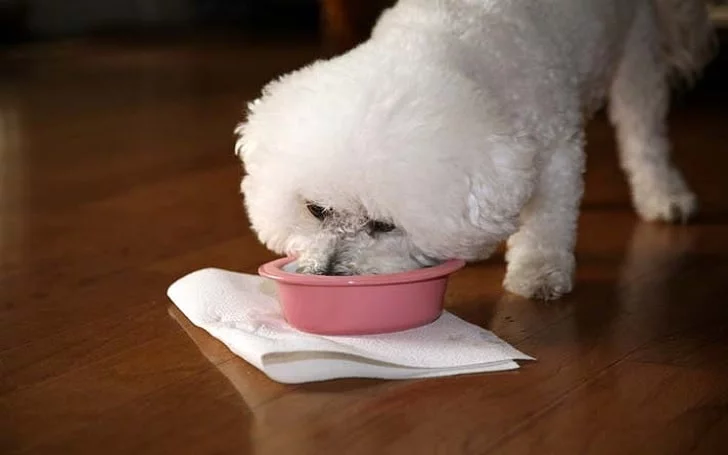
Consulting your veterinarian for dietary recommendations tailored to your Bichon Frise puppy’s age, weight, and activity level is crucial. Puppies have different nutritional requirements than adult dogs, and your vet can provide guidance on feeding schedules and adjustments as your puppy grows.
Grooming and Coat Maintenance Tips
The Bichon Frise’s luxurious coat is one of its most iconic features, but it requires consistent grooming to keep it looking its best. Regular brushing helps prevent tangles and mats, which can become uncomfortable for your puppy. Establish a grooming routine that includes brushing your Bichon Frise’s coat at least a few times a week.
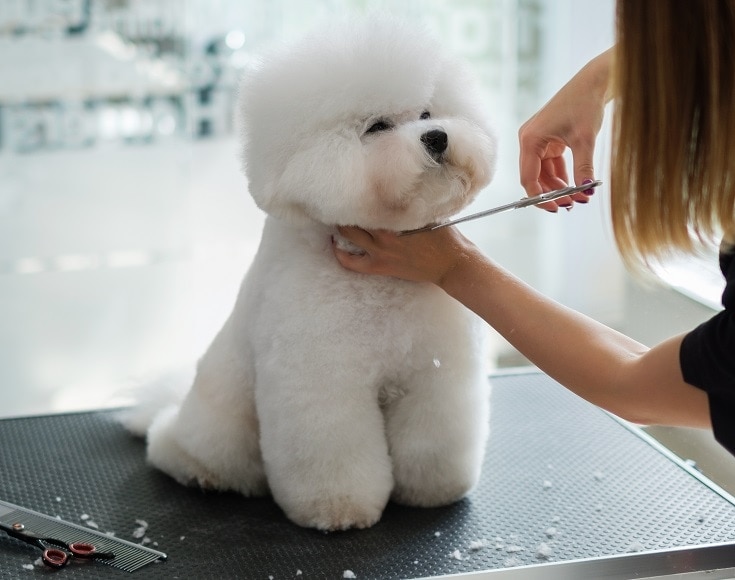
Professional grooming every 4 to 6 weeks helps maintain the coat’s texture and appearance. During grooming sessions, pay special attention to the eyes. Bichon Frise puppies are prone to tear staining, so gently cleaning around the eyes can help prevent staining and keep your puppy looking fresh.
In addition to coat care, keep your puppy’s nails trimmed to a comfortable length and clean their ears to prevent infections. Regular dental care, such as brushing their teeth or providing dental treats, is also important to maintain good oral health.
Training Strategies for a Well-Behaved Bichon Frise
Early training is essential to ensure your Bichon Frise grows into a well-mannered and obedient companion. Begin with basic commands such as “sit,” “stay,” “come,” and “down.” Use positive reinforcement techniques, such as treats, praise, and playtime, to reward your puppy for good behavior. Bichon Frises are intelligent and eager to please, making them responsive to positive training methods.
Socialization is another crucial aspect of training. Expose your Bichon Frise puppy to different people, animals, and environments from a young age. This helps them develop into confident and well-adjusted adults. Puppy socialization classes can provide structured environments for interaction and learning.
Health Considerations and Regular Check-ups
Maintaining your Bichon Frise’s health is a lifelong commitment. Regular veterinary check-ups are essential for monitoring your puppy’s growth, addressing any health concerns, and staying up-to-date on vaccinations and preventive treatments.
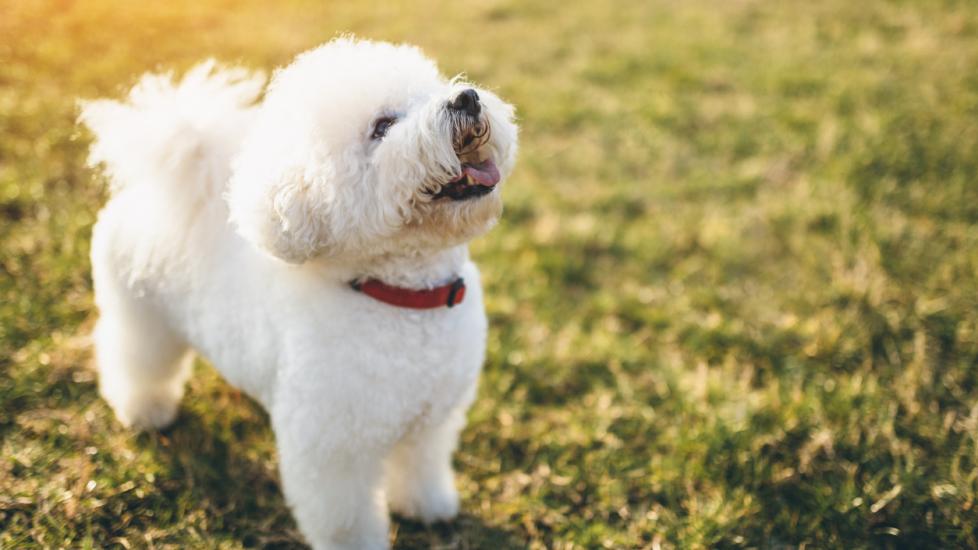
Bichon Frises can be predisposed to certain health issues, including dental problems, allergies, and joint concerns. Proper dental care, such as regular teeth brushing, can prevent dental disease. Keep an eye out for any signs of allergies, such as excessive itching or ear infections, and consult your vet if you have concerns.
Finding a Bichon Frise Puppy
If you’re looking to add a Bichon Frise puppy to your family, it’s important to find a reputable source. While you might be tempted to search for phrases like “Bichon Frise for sale near me” or “Bichon Frise puppies for sale,” it’s crucial to prioritize ethical breeding practices and the well-being of the puppies. Reputable breeders prioritize the health and happiness of their dogs over profit.
Research potential breeders thoroughly. Ask for references, visit their facilities if possible, and inquire about the health testing they conduct on their breeding dogs. If adoption is an option you’re considering, shelters and rescues can be wonderful places to find Bichon Frise puppies in need of loving homes.
Welcoming a Bichon Frise puppy into your life is a heartwarming and rewarding experience. By understanding the breed’s characteristics, providing a safe and loving environment, focusing on proper nutrition and grooming, and committing to training and health care, you’re setting the stage for a lifetime of happiness with your furry friend. Remember, a Bichon Frise’s love and companionship are matched only by the care and attention you invest in their well-being.
Traveling with Your Bichon Frise
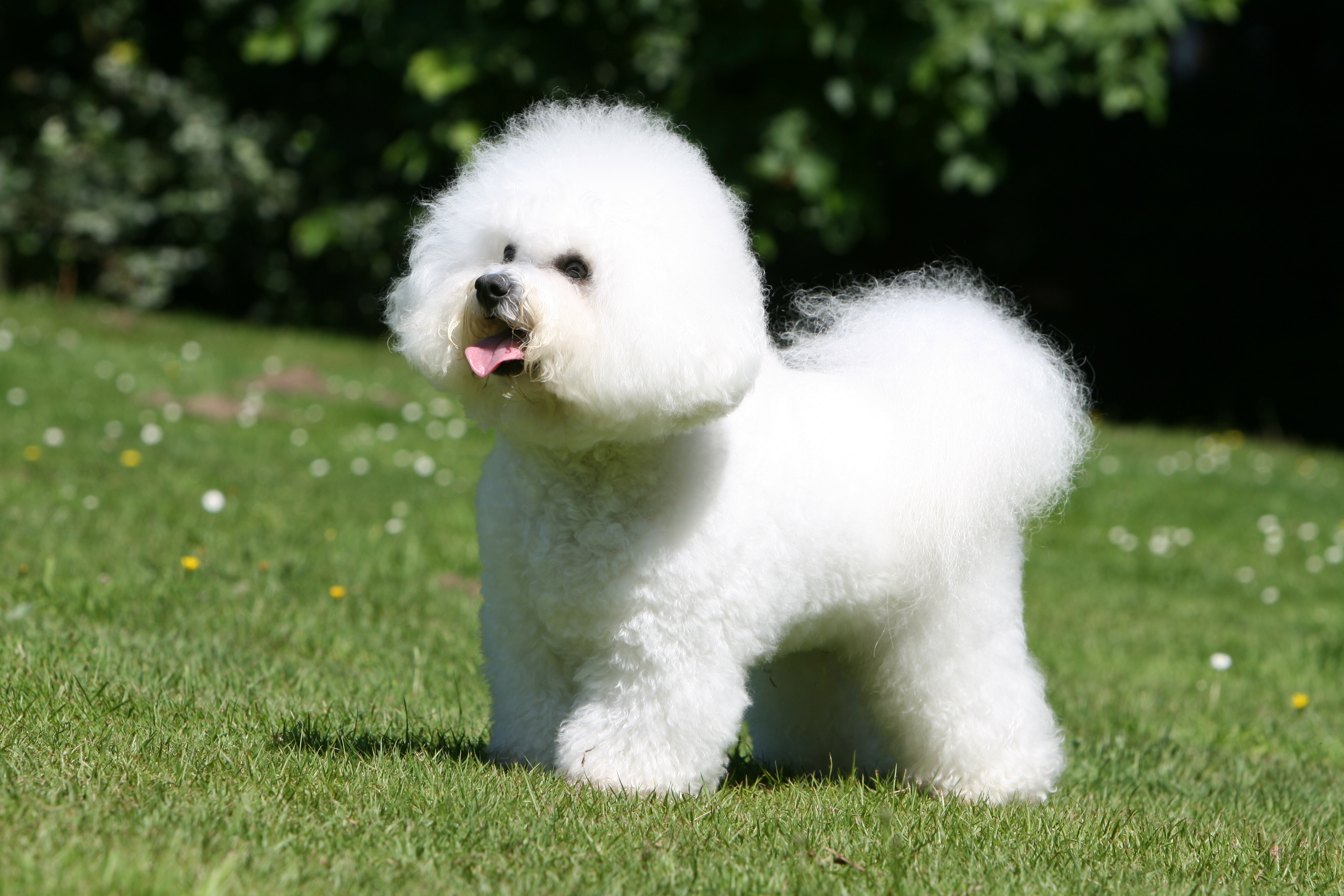
If you love to travel, you’ll be pleased to know that Bichon Frise puppies can be great travel companions. However, ensure your puppy’s safety and comfort by using a secure travel crate and packing their essentials, including food, water, and familiar toys. Traveling with a Bichon Frise requires careful planning to ensure their well-being. Introduce your puppy to the travel crate beforehand, provide them with comfort items, and take frequent breaks during long journeys to allow them to stretch their legs and relieve themselves.
Building a Lifelong Bond
Lastly, remember that your Bichon Frise puppy is not just a pet, but a beloved member of your family. Spend quality time together, provide love and attention, and continue training and socializing throughout their life. The strong bond you build will result in a happy and well-adjusted adult Bichon Frise. Sharing your life with a Bichon Frise is a rewarding experience, and the love and companionship they offer make the time and effort invested in their care truly worthwhile.
In conclusion, bringing a Bichon Frise puppy into your home is a joyous occasion that comes with responsibilities. By following the guidelines in this ultimate guide, you’ll be well-prepared to provide the best possible care for your furry friend. From finding a reputable breeder to maintaining their health and happiness, every step you take will contribute to a fulfilling and lasting relationship with your Bichon Frise puppy. Your dedication to their well-being will be rewarded with years of companionship, love, and cherished memories.